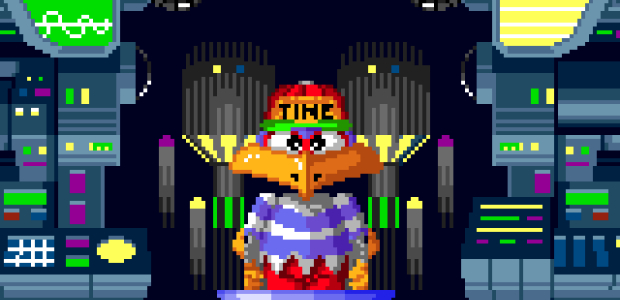Fads and trends are an inevitable part of human life. Throughout time, these pieces of pop culture have been forgotten almost as quickly as they appeared, leaving only traces of themselves deep in our junk drawers and in embarrassing pictures that show ourselves relishing them at the height of their popularity.
Like all other forms of media, videogames go through fad phases as well. Once a developer creates something that breaks the mold and does extraordinarily well, other developers see to it that no shred of the good stuff goes to waste. This often leads to dozens of cheap knock-off games that pale in comparison to what they have attempted to imitate. Gamers have seen this happen many times before, and it is bound to happen even more as the medium continues to grow. Rip-offs of popular games are an inevitability.
During the early 1990s, Sega had finally risen to a level where it could directly compete with Nintendo, thanks to the Genesis/Mega Drive and a little series called Sonic the Hedgehog. Sonic definitely made an impression on the videogame industry at the time, as he made a trend out of the combination of speed and platforming, not to mention animal protagonists with ‘tude. And then came the subsequent wave of cheap knock-offs.
Many only bore a slight resemblance to the works in which they borrowed from, but then there were games like Socket: Time Dominator that went all the way. Just like any other attempt to cash in on a fad, the game quickly came and went.
Story:
The hero is a time traveling blue duck named Socket who has an electrical cord for a tail. Contrary to the way that the game’s title makes it appear, Socket is not the Time Dominator. The Time Dominator is instead the name of the game’s villain, a fox-like creature in a top hat and monocle who can also time travel. Because he is evil, he is using his abilities to wreck the past. Socket must speed through time and stop the TD from ruining the past.
Gameplay: Socket is a very fast creature that runs on electricity. At the start of each area, a generator fills up his energy bar, but as you maneuver through stages at high speeds, this energy depletes. Hits from enemies and falls onto dangerous obstacles will discharge some energy as well. You have to collect all the little lightning bolts around you to stay moving and alive. You have a kick attack at your disposal to get enemies out of your way, but little else to protect you from the elements.
Socket is broken up into stages that are again broken up into three areas. The first area of each stage is a High Speed Area, where the player is asked to make it to the goal on the other side of the stage as quickly as possible. The second is an Athletic Area, which is more based on platforming and attacking enemies. The third is a puzzle-oriented Labyrinth Area that ends in a boss battle against the Time Dominator.
Why you’re probably not playing it: Does the above description and the videos strewn throughout this article strike you as familiar? Because they ought to. Socket is a horrible, blatant rip-off of Sonic the Hedgehog, made by developer Vic Tokai to cash in on Sega’s flagship series during the time between Sonic the Hedgehog 2 and 3. While there were other games hoping to cash in on the whole animal-with-attitude trend during this time period, Socket‘s case of being a copycat is perhaps the worst of them all. Not only do both games feature animal characters who are blue, fast, have an attitude, wear red sneakers, and depend on shimmery gold items to survive, but their levels are broken down into acts, house robotic enemies, are built upon slopes and springs, hold the game’s main enemy at the end of the third act, and so on, and so on.
What’s especially horrible about is that, while Socket was very successful at being a complete knock-off of a great series, it is a pretty terrible game. Next to Jim Sterling, I am perhaps the biggest Sonic fan out of all the editors. I enjoy pretty much every 2D game of the series, Knuckles Chaotix and Sonic 3D Blast included. If I believe that Socket is nearly unbearable to play, know that it is truly a horrible game that does a disservice to the games it mimicked. As such, it has been long forgotten by most gamers, and is widely labeled as worthless to those who do remember it. Why waste time with an imitator when the real thing is much better and easily accessible?

Still, Socket: Time Dominator is an interesting game to look at from a cultural and historical point of view, as it shows the lengths that some developers have gone and will go in order to cash in on a popular videogame gimmick. Unfortunately, there were many rip-offs of popular games before Socket, and there have been many since. Games that have nothing solid to stand on other than elements robbed from the most popular game of the time have a snowball’s chance in hell to make as much of an impact as the original. Perhaps someday, developers will take this fact to heart.


